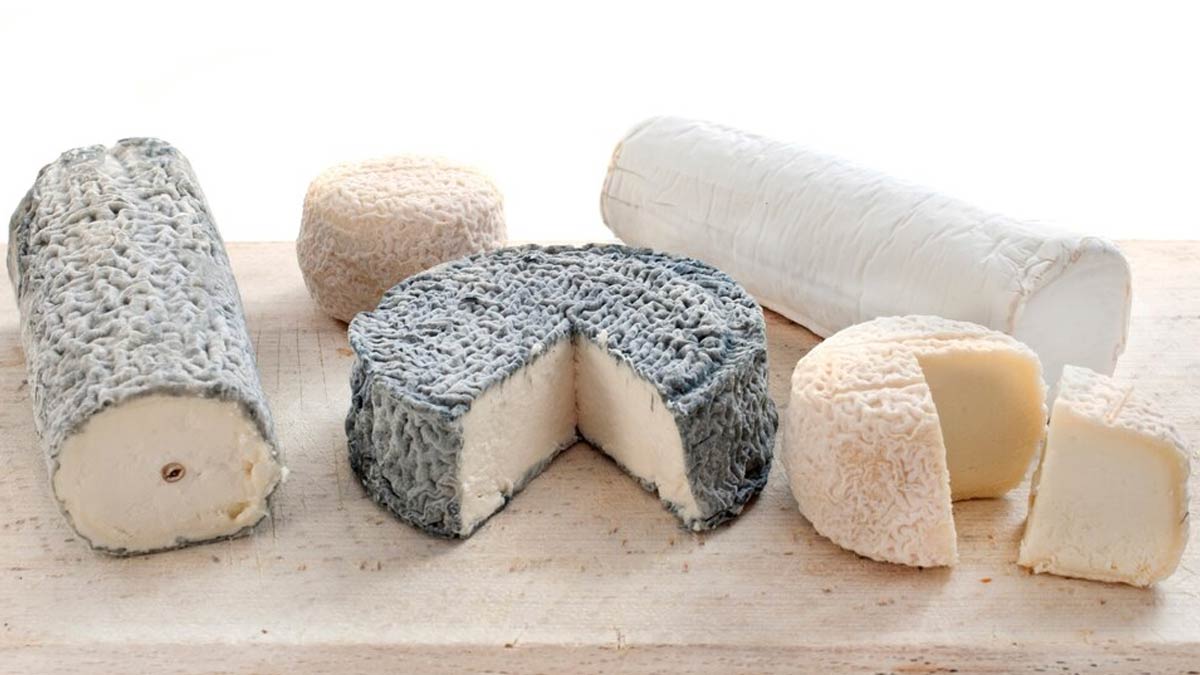
Are you bored of trying the regular cow cheese and are looking for something which is a creamy and tangy delight? Look no further than goat cheese, which is a type of cheese made from the milk of goats. It is known for its distinct flavour, which can range from mild to sharp depending on the ageing process. You can enjoy its delightful taste by pairing it with fruits, nuts, and sandwiches while enjoying the benefits that it offers. We spoke to Dr Ekta Singhwal, MSc Dietician, Ujala Cygnus Group of Hospitals, who listed the benefits of goat cheese, who should consume it and its side effects.
Table of Content:-
Nutritional Benefits of Goat Cheese

According to the Multidisciplinary Digital Publishing Institute (MDPI), goat's milk has several natural qualities and is highly nutritious due to its fatty content. As a result, it is a desirable substitute for dairy products that have a high added value, such as cheese.
Dr Singhwal listed the essential nutrients found in goat cheese as follows:
- Protein: Goat cheese is an excellent source of protein and provides the body with amino acids necessary for muscle repair and growth.
- Calcium: Rich in calcium, goat cheese supports bone health and helps prevent osteoporosis.
- Vitamins: It contains vitamins, such as vitamin A, B vitamins (riboflavin, niacin, and vitamin B6), and vitamin K, which are vital for various bodily functions, including immune support and blood clotting.
- Minerals: Apart from calcium, goat cheese contains minerals like phosphorus, potassium, and magnesium, contributing to overall health and well-being.
- Low Lactose Content: Goat cheese is naturally lower in lactose compared to cow's milk cheese, making it a more digestible option for individuals with lactose intolerance.
Also Read: Ever Tried Blue Cheese? Expert Explains How It Can Benefit Your Health
Who Should Consume Goat Cheese?
Dr Singhwal said that goat cheese can be a valuable addition to many diets and listed the following:

Individuals with Lactose Intolerance
You may try goat cheese if you are lactose intolerant. This is because goat cheese has lower lactose content as compared to cow's milk cheese.
Those Seeking Alternatives to Cow's Milk Cheese
The distinctive flavour of goat cheese makes it a great alternative to traditional cow's milk cheese for those looking for a cheese alternative.
Aiming To Promote Bone Health
With its rich calcium content, goat cheese can be beneficial for individuals looking to support bone health and prevent conditions like osteoporosis. According to the Open Orthopaedics Journal, goat cheese provides a potent blend of calcium, phosphorus, and copper in a serving, which is necessary for strong bones.
Opt For Moderation
While goat cheese offers health benefits, it should be consumed in moderation, especially by individuals mindful of their saturated fat and sodium intake.
Also Read: From Weight Gain To Causing Acne: Expert Debunks Myths About Milk
Incorporating Goat Cheese Into Your Diet
.jpg)
Here are different ways to add goat cheese to your diet:
- Salads: Crumble goat cheese over fresh salads for a creamy and tangy flavour boost
- Appetisers: Spread goat cheese on crackers or crusty bread for a delightful appetiser
- Pasta Dishes: Stir goat cheese into warm pasta dishes for a creamy and flavorful sauce
- Sandwiches and Wraps: Add slices of goat cheese to sandwiches or wraps for an extra layer of flavour
- Omelettes and Frittatas: Sprinkle crumbled goat cheese into omelettes or frittatas for a creamy and savoury twist
Potential Side Effects of Goat Cheese
While goat cheese offers numerous health benefits, it's essential to be aware of potential side effects. Here are some of its side effects, as listed by the expert:

High in Saturated Fat
“Goat cheese, like many other types of cheese, contains a relatively high amount of saturated fat. Consuming excessive amounts of saturated fat may increase the risk of heart disease and lead to elevated cholesterol levels”, said Dr Singhwal. Therefore, it is important to consume goat cheese in moderation to reap its benefits without compromising heart health.
High in Sodium
Some varieties of goat cheese can be high in sodium, which may pose risks for individuals with high blood pressure or those watching their sodium intake. Therefore, you should opt for low-sodium varieties or consume goat cheese in moderation to help mitigate this risk.
Potential Allergies
“While rare, some individuals may be allergic to proteins found in goat milk and goat cheese, experiencing allergic reactions, such as hives, itching, or digestive discomfort”, added Dr Singhwal. It's essential to monitor for any adverse reactions after consuming goat cheese, especially for those with known dairy allergies.
[Disclaimer: This article contains information provided by a registered expert and is for informational purposes only. Hence, we advise you to consult your expert before adding anything to your diet, especially if you are dealing with any health issues.]
Also watch this video
How we keep this article up to date:
We work with experts and keep a close eye on the latest in health and wellness. Whenever there is a new research or helpful information, we update our articles with accurate and useful advice.
Current Version